|
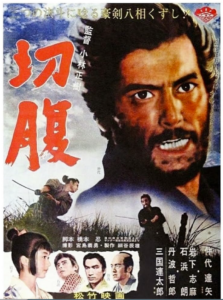
Synopsis:
When a down-on-his-luck former samurai (Tatsuya Nakadai) arrives at the estate of a clan run by daimyō Saitō Kageyu (Rentarô Mikuni), and requests safe harbor to commit seppuku, he is told the story of a younger rōnin (Akira Ishihama) who made the same request several months earlier — and deeper connections between the two men are soon revealed.
|
|
Genres, Themes, Actors, and Directors:
- Flashback Films
- Historical Dramas
- Japanese Films
- Samurai
Review:
As I’m finishing up all films from 1962 listed in Peary’s book, I stumbled upon this unexpectedly gripping jidaigeki (i.e., period) tale by director Masaki Kobayashi, who I hadn’t heard of (this is his only GFTFF-listed title). Tatsuya Nakadai — easily recognizable to film fanatics from Kon Ichikawa’s Odd Obsession (1959), Mikio Naruse’s When a Woman Ascends the Stairs (1960) (a Missing Title), and Ikira Kurosawa’s Yojimbo (1961), Sanjuro (1962), High and Low (1963), Kagemusha (1980), and Ran (1985) — turns in a masterful performance here as a rōnin (i.e, a masterless former-samurai) with a secret.
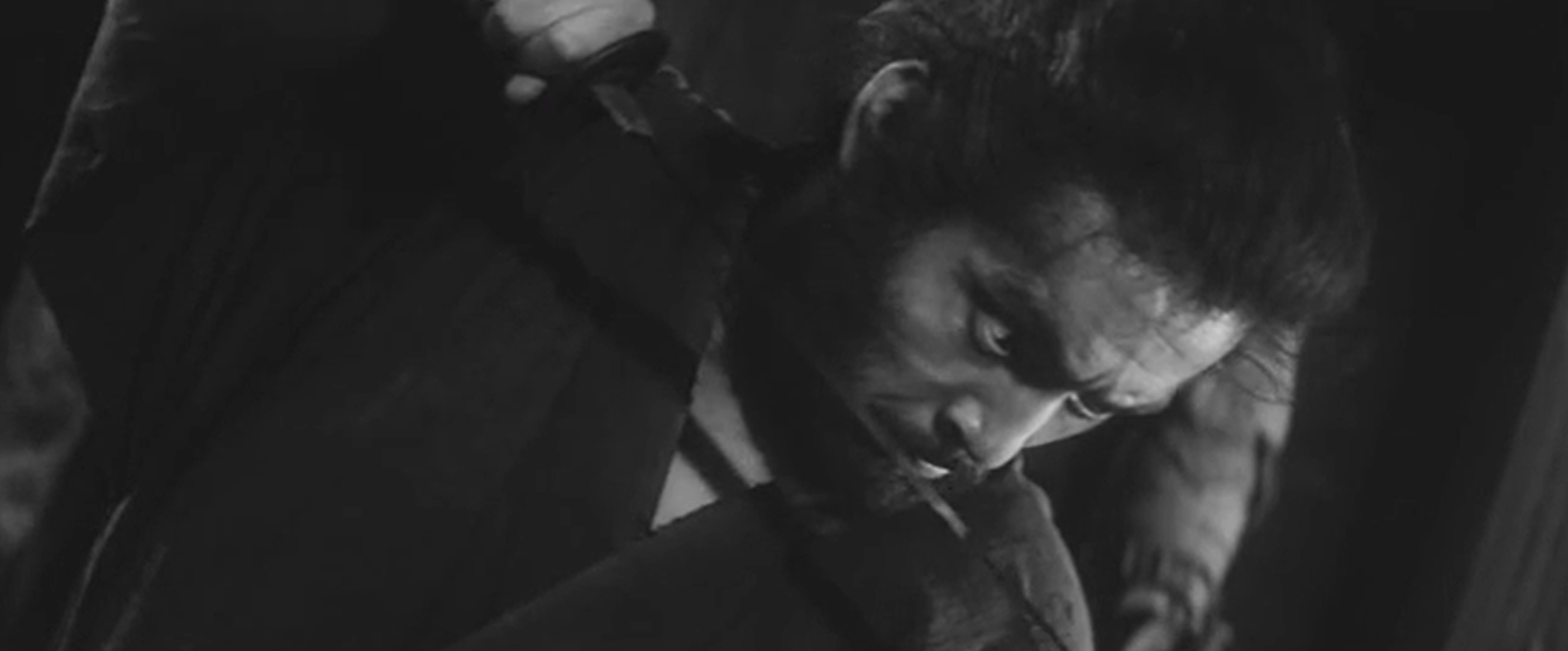
The flashback-filled script by Shinobu Hashimoto steadily builds tension as our initial assumption — that the film will focus on Nakadai’s own honor-fueled desire to commit seppuku (a.k.a. harakiri) — becomes more of a cat-and-mouse tale of Nakadai ensuring that arrogant Mikuni understands his connection with the previous rōnin (Ishihama) at their household, and how decisions made at that time were both uninformed and ill-advised.
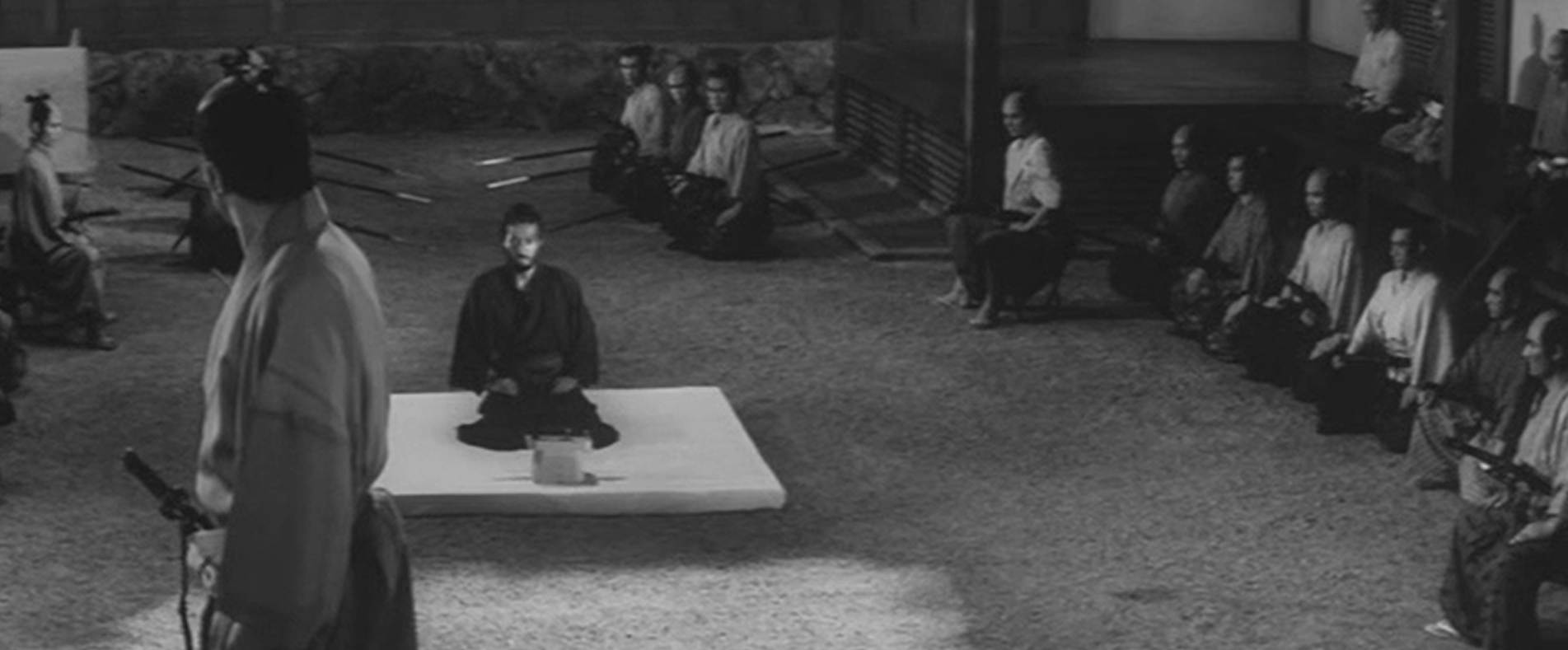
To say more would be to spoil the adventure, so I will stop here — except to say that while things move somewhat leisurely at first, everything builds to a highly atmospheric conclusion which is well-worth the slow-burn. I’ll be watching more of Kobayashi’s films once I’m done with this project.
Notable Performances, Qualities, and Moments:
- Tatsuya Nakadai as Hanshiro Tsugumo
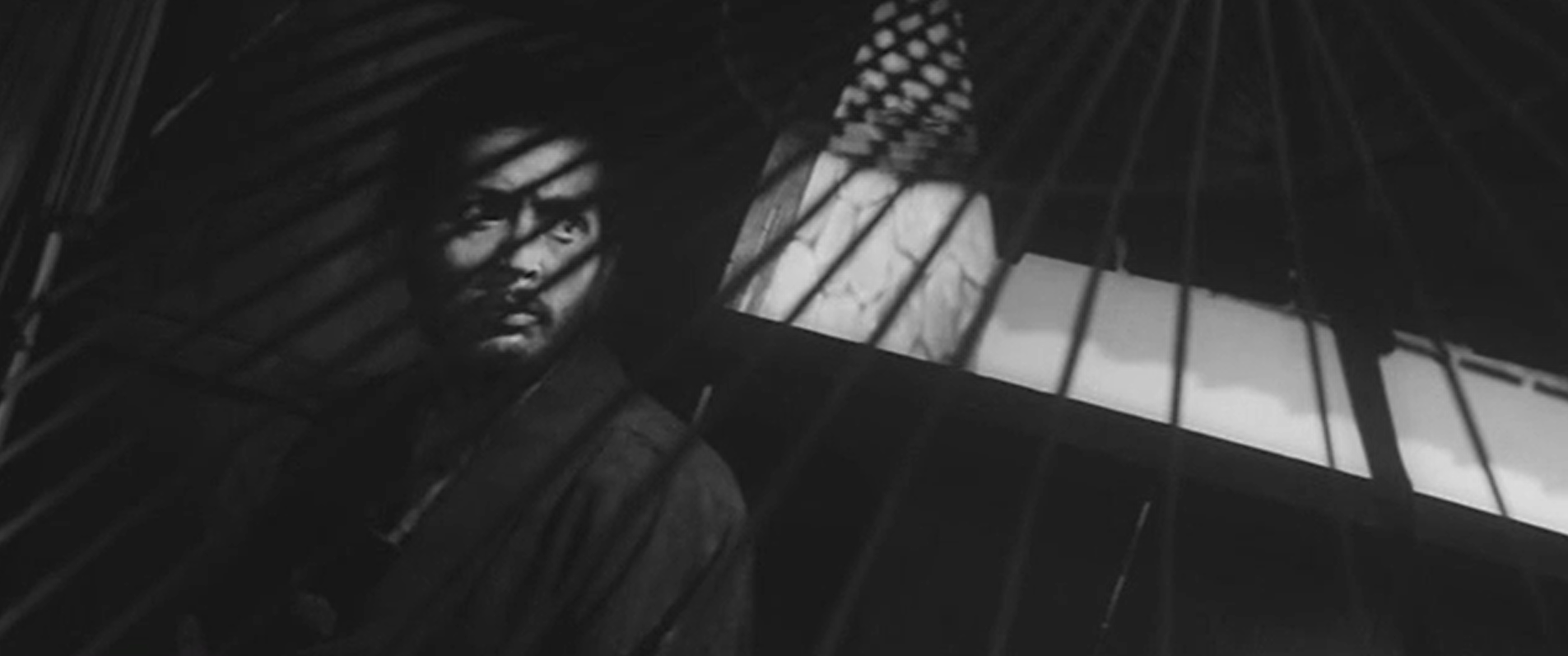
- Highly effective direction and cinematography
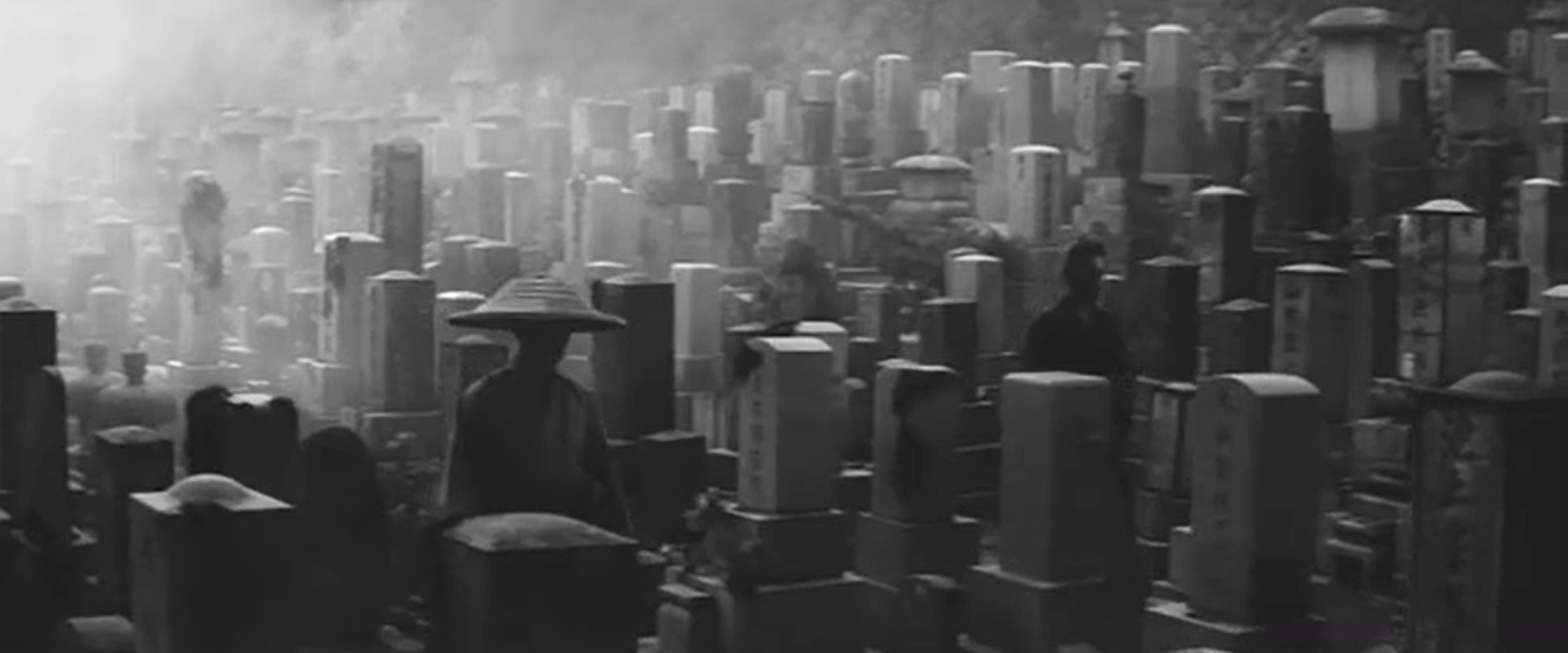
- Numerous heartbreaking sequences
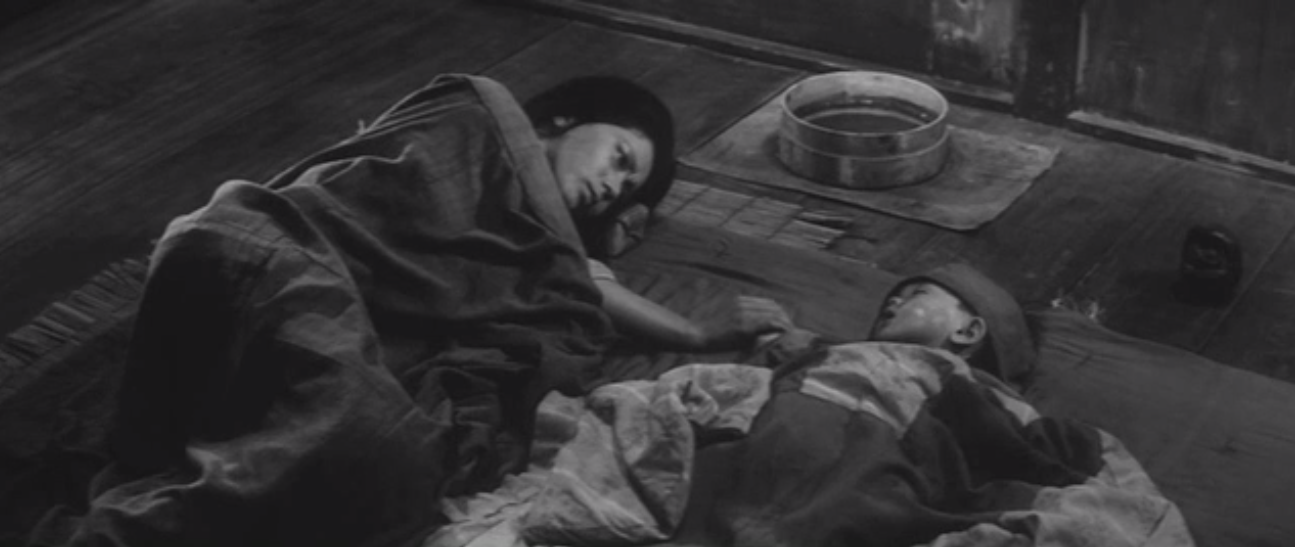
- The beautifully shot late-film duel
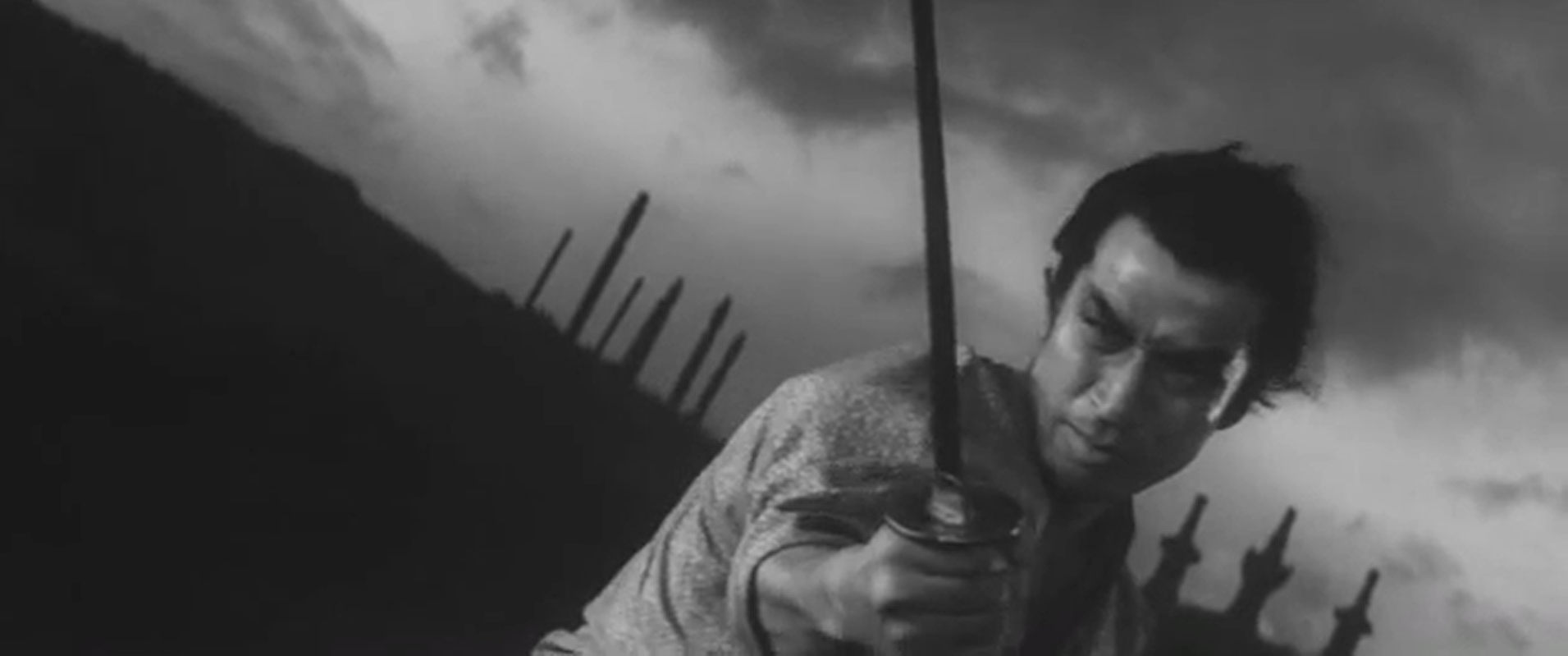
- Shinobu Hashimoto’s screenplay
Must See?
Yes, as an unsung masterpiece of Japanese cinema.
Categories
Links:
|







One thought on “Harakiri (1962)”
Rewatch (4/30/16). Must-see, as (as noted), “an unsung masterpiece of Japanese cinema”. As posted in ‘Film Junkie’ (fb):
“Would it not be better to simply hear me out?”
‘Harakiri’: We all know there are way too many films to keep up with. For some of us, it’s enough of a challenge keeping abreast of the new ones. But… I somehow keep it in my mind to revisit films I may have only seen once, years ago (like this one)… and now that many classic films are being reissued in blu-ray versions, it can be a real treat seeing them in the sharpest manner possible.
(The blu-ray of ‘Harakiri’ is impressive because it really heightens the actors’ faces, esp. in close-ups, making it possible to appreciate their expressiveness – not to mention their skin textures.)
‘Harakiri’ – which I can now recognize as a masterpiece – should not be confused with typical samurai films. Its take on the genre is not like Kurosawa’s, in which the warriors are seen merely upholding their gung-ho, last-man-standing spirit. ‘Harakiri’, instead, views the samurai system as being inherently fraudulent. It also skewers warlords as being ruthlessly deceptive, under the guise of ‘honor’.
In the first hour, the film indulges in a kind of black comedy that borders on being sick. But things escalate from there, ultimately to an astonishing finale in which real swords were used during filming (something illegal in Japan). It’s a bit more talky than an average samurai flick… nevertheless, it’s a flawless film experience.